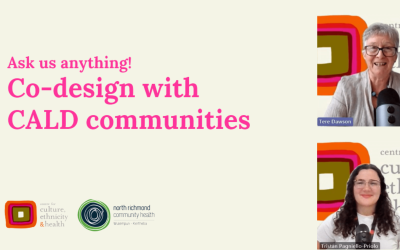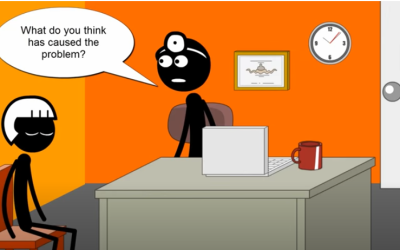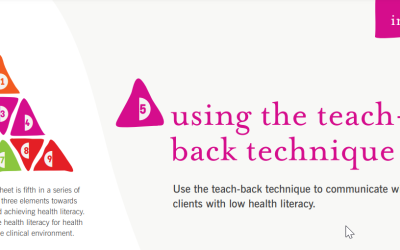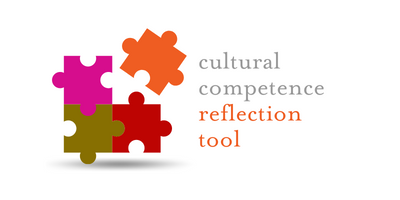Our Latest News
CEH is all grown up! 30th birthday celebrations.
On 17th September 2024, CEH celebrated its 30th anniversary with staff and friends from organisations that have worked with us over the years on projects, training and partnerships. A great opportunity for all of us at CEH to reconnect and catch up on what’s happening in the sector.
Connecting with communities using Health Literacy principles
Plain language is essential for effective communication. When health information is presented in plain language, it is easier for people to understand. This is particularly important when dealing with diverse communities where English may not be the first language for many residents.
Co-design: what, why and how?
We know that collaboration is an important step in engaging diverse communities in services, particularly those that face certain barriers such as linguistic and cultural differences, lack of awareness of services, and limited access to information. So, how can we collaborate with these communities? Read on for our thoughts.
The Arthur Kleinman Explanatory Model
This model was first proposed by Arthur Kleinman, who developed a set of eight questions to ask a client to learn more about their explanatory model to provide better patient-centered care.
Addressing challenges to work cross culturally; new cultural competence bundles
When there are gaps in cultural awareness and language, there are more misunderstandings, biases and sometimes compromised health outcomes. The good news is that there is so much we can do to be more prepared.
Reflect and and reset for 2024
Have you set your goals for 2024? Time is often the greatest barrier to reflection, so while the pace is a little slower as we enter the new year, it’s the perfect opportunity to reflect and set our goals for the months ahead.
Working with interpreters: troubleshooting and trust-building
Building relationships with clients can be a delicate task. Trust is integral to effectively carrying out our work professionally, but what happens when we bring an interpreter into the scenario? Find out in this article.
A Skilled Way of Checking In
During workshops, we find that questions like “Does that make sense?” often fall short of revealing the true picture. ‘Teach-back’ is a simple yet powerful tool which allows for far better communication. Read this month’s blog to know more about this tool.
Working with people from migrant and refugee backgrounds
The Cultural Competence Reflection Tool (CCRT) for practitioners provides an opportunity for workers to reflect on their knowledge and skills in relation to working with clients from migrant and refugee background.
Assess your individual cultural competence
The Centre for Culture Ethnicity and Health (CEH) has developed the Cultural Competence Reflection Tool (CCRT). CCRT is an online resource that is designed to gauge individual workers’ cultural competence across several domains. The domains include: attitudes and...
Better Services with Trauma Informed Care
Five million Australians, out of a total population of 22.6 million, have experienced complex trauma. But you can’t tell by looking at them who has experienced trauma and most won’t come out and say it until they trust you.
Don’t forget the final step – debrief with your interpreter
An important aspect of working with interpreters is debriefing. Interpreters frequently tell us, they really value a briefing well done.So don’t be afraid of providing feedback at the end of the engagement.
View Our Newsletters
Catch up on CEH news and events
And Health Translations latest resources












